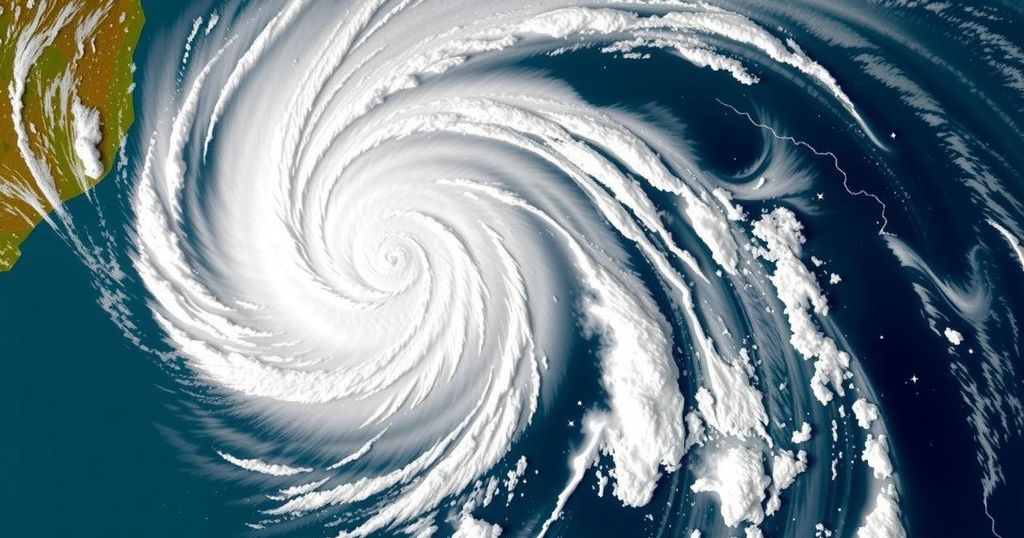Malawi Declares High Alert Ahead of Tropical Cyclone Chido’s Approach
Malawi is on high alert for Tropical Cyclone Chido, which is expected to bring heavy rain and flooding to southern districts. The cyclone has retained a strength of 250 km/h and is projected to make landfall near Nacala in Mozambique. Authorities urge residents in vulnerable areas to evacuate and preparation measures have been activated ahead of the storm, amidst ongoing El Niño challenges.
As Malawi braces for the impending arrival of Tropical Cyclone Chido, officials have declared a state of high alert throughout the country. Meteorological reports indicate that the cyclone, located northeast of Madagascar in the Indian Ocean, is expected to generate heavy rainfall and flooding in the southern regions. The Malawi Department of Climate Change and Meteorological Services has cautioned that Chido, boasting maximum sustained winds of 250 kilometers per hour, poses a significant threat, especially as it moves westward at a speed of 22 kilometers per hour.
The cyclone is anticipated to affect 11 districts in southern Malawi, including Mangochi, Machinga, Phalombe, and others, with landfall projected near Nacala in Mozambique on Sunday. In response to the potential danger, Chipiliro Khamula, spokesperson for the Department of Disaster Management Affairs, has urged residents in flood-prone areas to relocate to higher ground and adhere to evacuation directives. “We have alerted all [district] councils and activated all clusters for swift preparatory and anticipatory actions,” stated Khamula. To bolster response efforts, arrangements for search-and-rescue teams, comprising the Malawi Defense Force, police, and local organizations, have also been made.
This tropical cyclone follows a devastating event last year when Cyclone Freddy resulted in over 1,000 fatalities in southern Malawi and significant loss of agricultural resources. Moreover, prior to Chido’s arrival, Malawi has been experiencing adverse El Niño weather patterns, contributing to drought and widespread food shortages for approximately 25% of its 20 million inhabitants. The World Food Program (WFP) is prepared to support government food aid efforts through existing stockpiles, as highlighted by Paul Turnbull, country director for the WFP in Malawi.
As the situation develops, the WFP stands ready to assist in delivering food supplies and coordinating rescue operations amid Cyclone Chido’s impact, emphasizing the need for support to effectively manage both the upcoming disaster and the ongoing humanitarian crisis linked to El Niño conditions.
Tropical Cyclone Chido threatens to significantly impact southern Malawi as it approaches the area, expected to bring heavy rains and potential flooding. This cyclone follows the lethal Cyclone Freddy, which devastated the region last year. The combination of cyclone threats and the repercussions of El Niño exacerbates the challenges faced by Malawi, which is already grappling with food shortages and environmental distress. The proactive measures by local authorities aim to mitigate the impending disaster and protect vulnerable communities.
The impending arrival of Tropical Cyclone Chido has prompted urgent preparedness measures in Malawi, where officials are urging residents in flood-prone areas to evacuate and transition to safer locations. This cyclone poses serious risks, particularly following last year’s devastating Cyclone Freddy, as the country navigates both cyclone threats and the ongoing repercussions of El Niño-related food shortages. The response from both government and global organizations underlines the need for comprehensive support to manage these compounded crises effectively.
Original Source: www.voanews.com




Post Comment